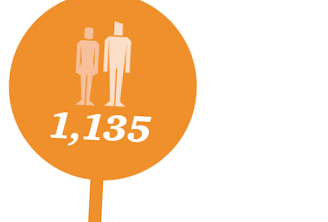Generation Collaborate: can your business adapt for closer co-operation?
 As baby boomers move into retirement, a new generation of workers is bringing in fresh perspectives and expectations that will impact how businesses operate and, ultimately, how they perform. So, are you ready for Generation Collaborate?
As baby boomers move into retirement, a new generation of workers is bringing in fresh perspectives and expectations that will impact how businesses operate and, ultimately, how they perform. So, are you ready for Generation Collaborate?
While the cliché is that Millennials represent an entitled generation, the truth is they actually want to earn and get on in the workplace – and as Fortune points out, this might have something to do with them graduating to the workplace at the deepest part of a recession.
Now, as the first wave of Millennials moves into management, they are being joined at work, in junior positions, by members of Generation Z – those born from the mid-1990s – and the combination of these two groups of digital natives is having a profound effect on workplace values.
This combination of Gen Zs and Millennials, according to a new report from Randstad and Future Workplace, has resulted in the emergence of a generation that needs intensive collaboration and feedback for it to feel happy and comfortable in the workplace.
The Gen Z & Millennials Collide @ Work report – which surveyed 4,066 Gen Zs and Millennials in ten countries – found ‘co-workers who like to collaborate’ was a top factor in helping these groups do their best work. In fact, 56% of respondents said it was ‘the people I work with’ that enabled them to do their best work.
Why is this important? Well, you might think it’s not, but the value young employees put on a collaborative approach can drive their attitudes on where to look for work and on how long they’re prepared to stay with an employer.
As the report points out, both generations will only continue to increase their presence in the workforce – and that alone is enough for c-suite executives to need to understand their drives and to develop programmes that build on their strengths and help set them – and their employers – on a path to success.
Those Millennials and Gen Zs that work for what the report calls ‘outperforming companies’ cite ‘collaboration tools and regular feedback’ as the best way to engage with their managers. An engagement is very important for them. It’s interesting to note that in outperforming companies, 29% of respondents said they receive feedback after every project or task. In ‘under-performing companies’, this was just 11%.
“Having grown up in a world of texting, tweeting and Snapchat, these generations are accustomed to constant communication and feedback,” said the report. “In fact, our global study found more evidence that the annual performance review is coming to an end as Gen Z and Millennials are receiving reviews either daily (19%), weekly (24%) or regularly (23%) instead of annually (3%).”
It’s interesting to note that in outperforming companies, 27% of respondents said they had vehicle to voice new ideas and 19% said they use an online community to facilitate collaboration and review. In under-performing companies, these levels were, respectively, 17% and 11%.
With so many employees now used to integrating social activity into every moment of their lives, companies wanting to encourage greater collaboration in the hope that it will translate into business performance and staff retention will, inevitably, need to integrate social and digital technologies into the workplace to enable this.
Despite this requirement, many companies still need to improve in this area. Only 55% of respondents across the globe gave their employers high marks for effective collaboration across departments and business functions – and this isn’t just a matter of implementing the right technology, as young employees still value face-to-face communication over digital methods. It’s as much about operational change and management style.
“Collaboration and communication are not only drivers of operational and workforce performance,” said the report, “but these workplace attributes are also directly correlated with the engagement and retention of younger generations.”
The good news is that many business leaders are already on-board. The survey found executives strongly agree collaboration is important for: employee effectiveness (68%), efficiency (67%), creativity and innovation (67%) and operational performance (67%).
The trick is in the implementation. If performance is to be truly improved by greater collaboration, the process has to be genuine and not just a sop to the working preferences of the young. As the report says: “The relationship between manager and employee represents a vital link in performance management. Communication is crucial for that relationship to succeed.”